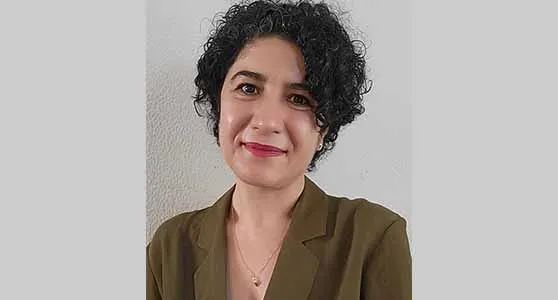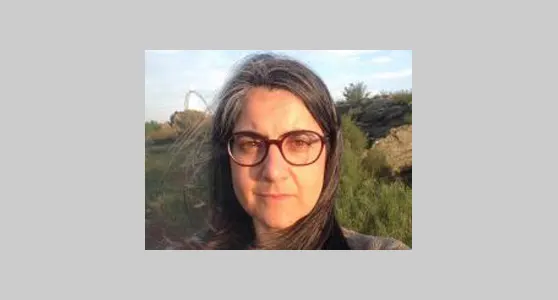Masters applications for 2025 entry are now closed.
Applications for September 2026 will open on Wednesday 24 September. Applications are now open for programmes with a January 2026 start. View our programmes »
| UCAS code |
|
| Duration |
1 year full time
2 years part time |
| Entry year |
September 2026 |
| Campus |
Streatham Campus
|
Why study MA Intercultural Communication and International Business
at Exeter?
- An interdisciplinary programme that will develop your intercultural awareness and competence, and give you an understanding of the theory and practice of intercultural communication, skills highly valued by employers in today’s global world.
- Develop an in-depth understanding of the complexities of communication in a globalised world, the ability to apply the acquired discipline specific skills to address challenges and implement positive and sustainable solutions, and the ability to conflate others’ perspectives to navigate complex relationships locally and globally.
- Taught by experts in the field of intercultural communication, discourse analysis, language and globalisation, multilingualism and language and migration, international business.
- Choose optional modules from our triple accredited Business School with subjects such as entrepreneurship, international business, marketing and human resource management.
- Join a vibrant research community and develop your research skills through a series of structured practical seminars supporting you in the planning, design, implementation and presentation of your research.
- There are two other pathways available for the MA Intercultural Communication, depending on interest: Migration or Education
Top 20 in UK subject rankings for Modern Languages
Triple accredited Business School
Top 10 for Business and Management
Top 150 in world subject rankings for Modern Languages and Cultures
Entry requirements
We will consider applicants with a 2:2 Honours degree or above in a social science* or humanities subject. While we normally only consider applicants who meet this criteria, if you are coming from a different academic background which is equivalent to degree level, or have relevant work experience, we would welcome your application.
*Accepted social science subjects include:
- Anthropology
- Archaeology
- Area and Development Studies
- Criminology
- Demography
- Development Studies
- Economics
- Economic and Social History
- Education
- Environmental Planning
- Human Geography
- International Relations
- Law
- Linguistics
- Management and Business Studies
- Media and Communication Studies
- Philosophy
- Politics and International Studies
- Psychology
- Science and Technology Studies
- Social Policy
- Social Statistics, Methods, and Computing
- Social Work
- Socio Legal Studies
- Sociology
Please also see our guidance on essential documentation required for an initial decision on taught programme applications.
Entry requirements for international students
Please visit our entry requirements section for equivalencies from your country and further information on English language requirements.
Read more
Please also see our guidance on essential documentation required for an initial decision on taught programme applications.
Entry requirements for international students
English language requirements
International students need to show they have the required level of English language to study this course.
The required IELTS test scores for this course fall under Profile B1.
Please visit our English language requirements page to view the required test scores and equivalencies from your country.
Fees
2026/27 entry
UK fees per year:
£12,650 full-time; £6,325 part-time
International fees per year:
£25,550 full-time; £12,775 part-time
Scholarships
The University of Exeter offers a wide range of scholarships to support your education, with £7 million available for international students applying to study with us in the 2026/27 academic year, including our prestigious Exeter Excellence Scholarships *. We also provide awards for sport, music and other achievements, as well as regional and partner scholarships with organisations such as Chevening, The Beacon Trust and the British Council. For more information on scholarships and other financial support, please visit our scholarships and bursaries page.
University of Exeter Alumni Scholarship
We are pleased to offer University of Exeter alumni beginning a standalone postgraduate programme in 2026/27 with us a scholarship towards the cost of your tuition fees. Full details can be found here.
*Terms and conditions, including deadlines, apply. See our website for details..
Course content
Core modules explore key concepts, such as culture, identity, acculturation, prejudice and othering, issues, debates, and critical approaches to intercultural communication from a global perspective that goes beyond Eurocentric or western perspectives.
You will also develop your research competence and critical reflection on the process of planning, designing, implementing, and presenting of research in preparation for your dissertation.
In one of the optional modules, Sustainable Development Goals Challenge, you join a team of international students and address a real-life sustainable development goal challenge. This ground-breaking module will help you gain first-hand experience in intercultural interactions.
The modules we outline here provide examples of what you can expect to learn on this degree course based on recent academic teaching. The precise modules available to you in future years may vary depending on staff availability and research interests, new topics of study, timetabling and student demand.
Compulsory modules
150 credits of compulsory modules
Among your 150 credits of compulsory modules you must take:
- SMLM087
- One of:
- 60 credits from the International Business pathway modules below
| Code | Module |
Credits |
|---|
| SMLM087 |
Intercultural Communication: Key Concepts and Theories | 30 |
| SMLM088 |
Dissertation | 60 |
| SMLM239 |
Consultancy Project | 60 |
| BEMM059 |
International Human Resource Management | 15 |
| BEMM071 |
Leadership and Global Challenges | 15 |
| BEMM116 |
Principles of International Business | 15 |
| BEMM128 |
Brand Design | 15 |
| BEMM164 |
Consumption, Markets and Culture | 15 |
| BEMM375 |
Sustainable Tourism Management | 15 |
| SML3026 |
Corporate Language and Communication: When Sharks Work with Dolphins | 15 |
Optional modules
30 credits of optional modules
Select 30 credits from the list below or other relevant modules of interest:
| Code | Module |
Credits |
|---|
| BEP3172 |
Future 17: Sustainable Development Goals Challenge | 15 |
| SMLM089 |
Language and Globalisation | 15 |
| SMLM090 |
Minority Languages: Maintenance, Revitalisation and Endangerment | 15 |
| SMLM091 |
Language, Discourse and Society | 15 |
| SML3043 |
Migration and Multilingualism | 15 |
| SMLM059 |
Language, Ethnography and Mobility | 15 |

Dr Birgül Yilmaz
Senior Lecturer in Intercultural Communication

Dr Susana Afonso
Associate Professor in Language, Cognition and Society

Professor Francesco Goglia
Associate Professor of Migration and Multilingualism
Dr Birgül Yilmaz
Senior Lecturer in Intercultural Communication
Dr Birgül Yılmaz is a Senior Lecturer in Intercultural Communication. She leads the core module of SMLM087 and SMLM088 on the MA in Intercultural Communication and creates optional modules based on her over a decade long ethnographic fieldwork gained internationally.
Dr Yılmaz is a Critical Sociolinguist and Applied Linguist, specialising in the areas of sociolinguistics of forced migration, humanitarianism, ethnography, critical/ discourse analysis, interactional sociolinguistics, and linguistic practice in institutional and precarious settings such as refugee camps. Her teaching is social justice oriented and builds awareness on everyday intercultural communicative inequalities.
She is a member of the International Association for Languages and Intercultural Communication (IALIC), the British Association for Applied Linguistics (BAAL), the American Association for Applied Linguistics (AAAL), and the Linguistic Ethnography Forum (LEF).
Dr Yılmaz is an Associate Editor for Glossa Contact. Her research in two refugee camps on Lesbos Island appeared on BBC Radio 3's Free Thinking programme: What language did Columbus speak?
Modules she convenes are:
Profile page
Dr Susana Afonso
Associate Professor in Language, Cognition and Society
Susana Afonso is Associate Professor of Language, Cognition and Society. Her research specialism is in Cognitive Linguistics and Construction Grammar. She has conducted a number of studies on language variation from a Cognitive Sociolinguistics perspective, in particular in relation to Portuguese as a global language. She also engages in interdisciplinary collaboration with researchers in Education in non-formal contexts, investigating the how the use of language in science museums between museum educators and audience may enable co-production of meanings or maintain well-established power dynamics.
Profile page
Professor Francesco Goglia
Associate Professor of Migration and Multilingualism
Professor Goglia’s teaching reflects his research interests in multilingualism. He’s always keen to share his findings with his students and encourage them to share their experiences of multilingualism both in seminar discussions and assessments.
In 2021, he was awarded a Community-Engaged Incubator: Students as Teachers of Multilingualism: a Bi-Directional Project between the University of Exeter and Rokeby School, a secondary school in the borough of Newham in East London. This pilot project tested an innovative method of community-engaged learning on multilingualism and linguistic diversity, in which both student cohorts were engaged in online teaching and learning activities.
He's also a member of the Society of Italian Studies Equality, Diversity and Inclusion working group, and a Fellow of the Higher Education Academy.
Profile page
Teaching and research
You will be taught by experts in the field of intercultural communication, discourse analysis, language and globalisation, multilingualism and language and migration, as well as international business. You will learn collaboratively with other students and the wider postgraduate research community.
Research in Modern Languages and Cultures is characterised by world-leading and internationally excellent research centres, which span a wide range of sub-disciplinary fields including:
The Business School has a number of interdisciplinary research centres including:
Read more
Careers
Employer-valued skills
You will be equipped with skills highly valued by employers such as communication in multicultural environments, understanding the complexities of communication in a globalised world, analytical and presentation skills, critical thinking and research-oriented skills, including planning skills and time management. You will also have a solid foundation in research and collaborative work, alongside your knowledge of business.
Careers
Professionals with the ability to work in diverse cultural and linguistic settings are required in a range of organisations. Career paths include NGOs, international development, multinational companies or international commercial enterprises. You could also pursue roles within the British Government and other corresponding national bodies, including consultancy. Alternatively, you may undertake PhD research and an academic career.












